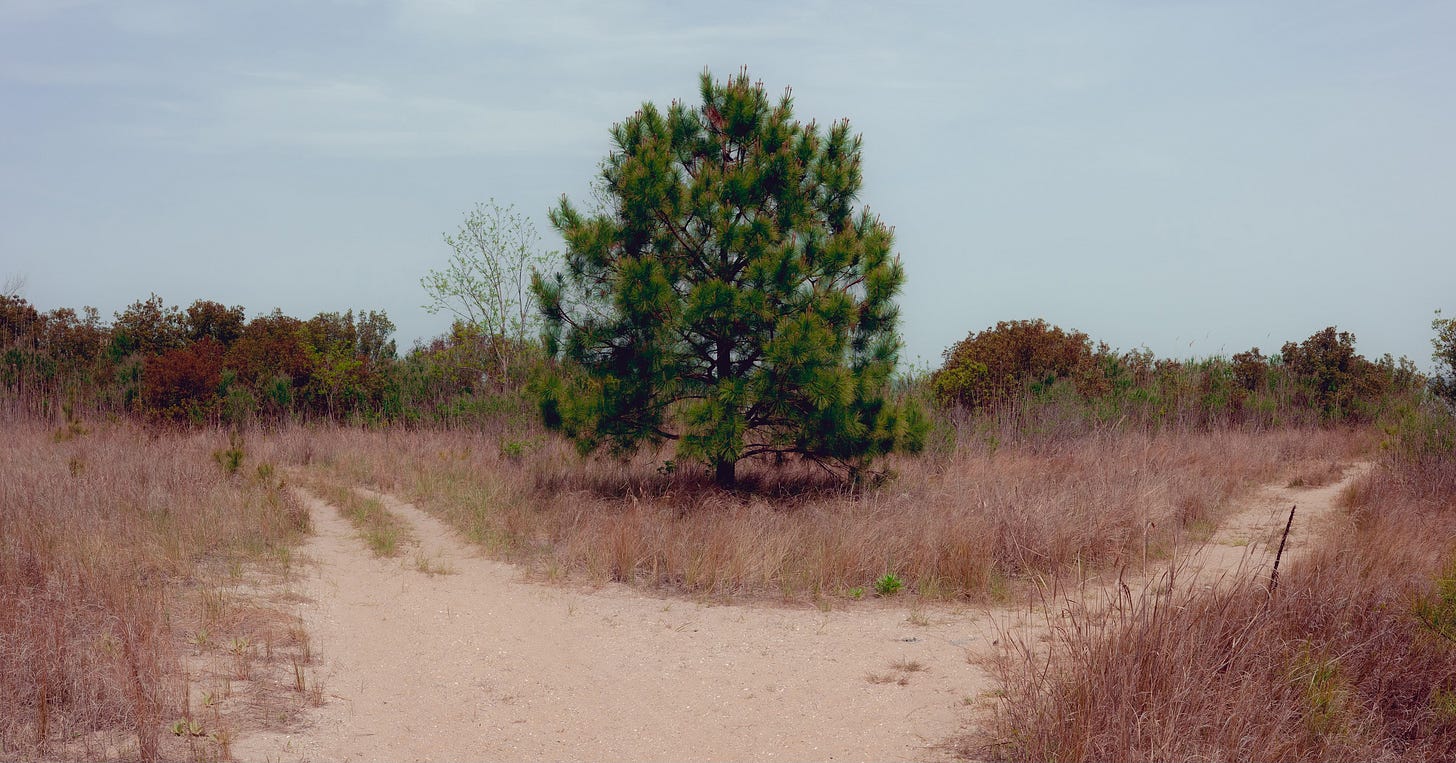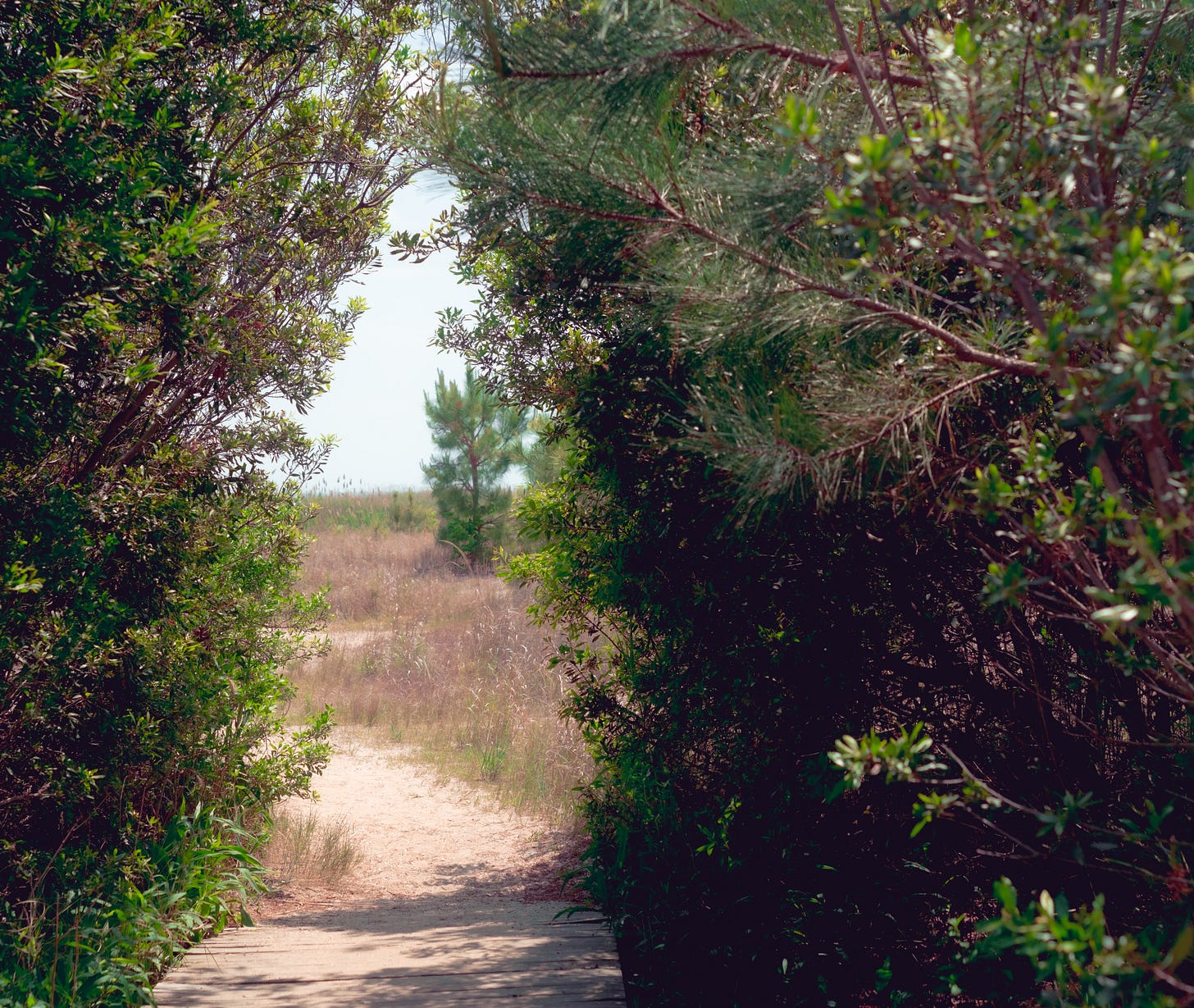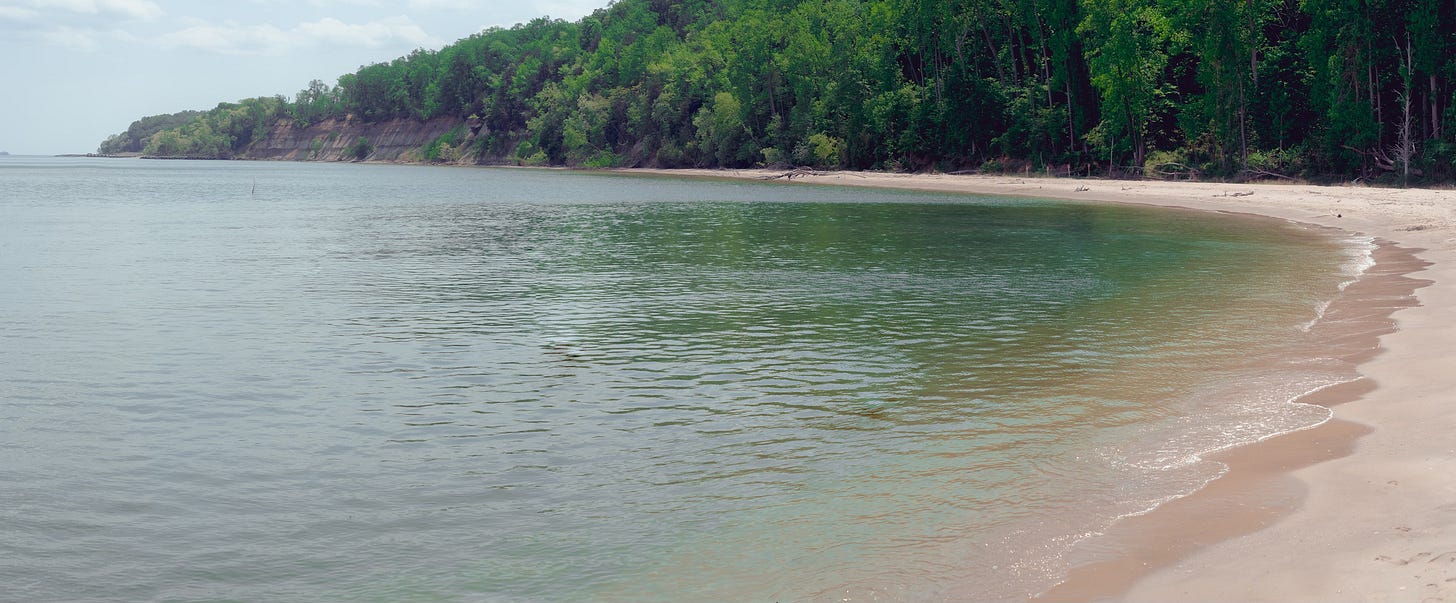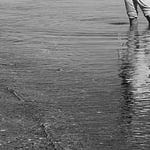The other day, I took a bit of a walk among thresholds, in a manner of speaking. A route where land and sea collide, but also where my county braces against the one adjacent.
May’s often the time when water revitalizes. Fresh water rushes in to remove the staleness of stagnant pools left over from the winter.
I didn’t live by the shore as a kid, but we had the absolute best swimming holes. If you knew the right paths—no, I won’t tell you; some secrets must be shown instead of told—you could find empyrean pockets of pine and limestone lined with waterfalls, rocks for sunbathing and active fishing spots. Brilliant, cool water would bubble and swell more invitingly than any hot tub.
That’s where we always wanted to go in the spring and summer. We never went where the water was stale. Only an idiot would swim there. Stagnant water was dangerous—even deadly. Everyone knew that.
Yet as an adult, that becomes easy to forget.
Today, there’s much of daily life that threatens to introduce spiritual stagnancy. I don’t just mean what some folks do in the big buildings on Sundays. Much of this also has to do with AI, social media, politics, technology, scientific bureaucracy and our very sense of purpose and self-worth. Untangling these would have us here for far longer than this walk, and I’ve become skeptical to the degrees to which analysis of that sort is needed. Instead, I thought I’d list out some steps I’m trying to take in an attempt to keep the water clean.
Participate in seasonality. There are daily, weekly, monthly and seasonal tides, and it’s to our benefit to move with them. This may include food prepared, stories shared, landmarks visited, spiritual practices observed.
Choose the Aidanic. Graciousness should be the baseline obligation in any social setting. When speaking up becomes necessary, points should be made through empathy and storytelling, not browbeating or statistics.
Speak with the hands more. Walking the community perimeter, pausing to let the sun set, or burying old totems from careers that no longer serve us aren’t silly superstitious practices. The heart, head and hands need regular alignment. Doing so is pragmatic.
Consider the language. Communication can take many roads. For example, “I am a follower of Jesus Christ, my personal Lord and Savior” and “I wander behind the Man of Sorrows” get at the same thing. But one invites a load of assumptions about political positions, social circles, rigidity of opinion, and moral outlook while the other has a much higher chance of leading to open questions and honest conversation. Language should invite communication, not scare it off.
Go where it’s resonant. If church ruins seem to have more spiritual amperage than the drywalled one in town, then spending time with the former isn’t necessarily time wasted.
Keep it small. Crowds have a tendency to reduce our sense of personal responsibility, amplify emotional extremes, and encourage amorality and greater risk-taking. Gathering is important, but it’s okay to wonder how many is too many in any one setting.
Go barefoot. Walk more and drive less. Leave the house without the phone more often. Keep it away from the forest and the beaches. Be gone so long that time becomes questionable. While wandering, either make a commitment to ruminate or to talk to strangers.
Embrace limitation. Stop trying to analyze, get things done or build a personal brand. As the old army adage goes, less “me,” more “we.” Invite some myths into the room and help them find their feet with new people and new language. Volunteer more. Be well-known at the library instead of on social media. Integrate instead of trying to stand out.
I should make it clear that I haven’t mastered any of these. It’s a long list and I’m far from perfect. But when stagnation threatens at every turn, having a description of fresh water can help remind us of what it’s supposed to taste like.
















Share this post